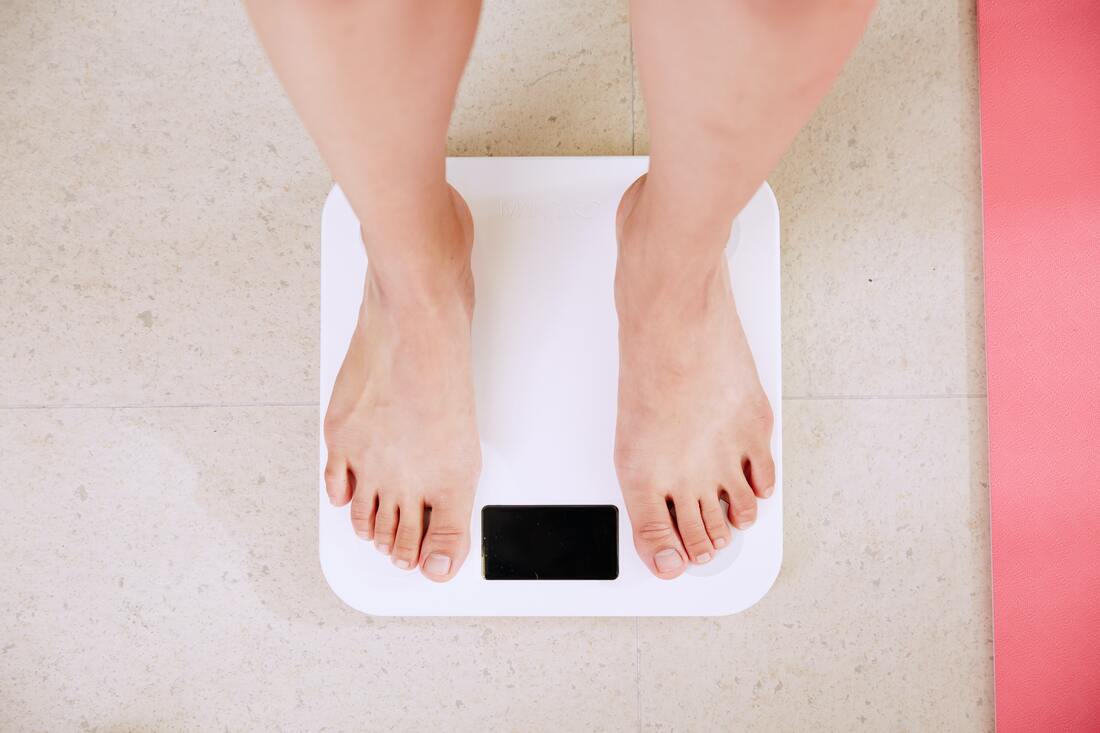|
By: Jennifer Rollin, MSW, LCSW-C “I’m being bad today, so I’ll have a piece of pie.” “You look great, have you lost weight?” Diet and weight talk is unhelpful for everyone. It can be harmful for people in recovery from eating disorders, for children, and for pretty much anyone who is trying to have a healthy relationship to food and their body. It’s also just boring. As an eating disorder and body image therapist, the following are a few tips for dealing with the inevitable “diet” and “weight” talk this Thanksgiving. 1. Recognize that this says way more about the person commenting, than it does about you. If someone feels the need to comment on your body size (or other people’s bodies) or on what you are eating, it’s important to remember that this says way more about the person who is commenting and where their focus lies. Often people who are highly focused on their own bodies and eating patterns are more likely to comment on other people’s bodies and eating habits. This is typically because they are feeling insecure, unhappy, or fixated, on their own weight and body. It can be helpful to remember that their comments are really a mirror into their own insecurities or unhealthy focuses. 2. Set some boundaries. Just because someone wants to launch into a conversation about their latest diet, does not mean that you have to sit there and listen. If someone is talking about a topic that is harmful for you, it’s important to remember that you always have the option to set boundaries. Setting boundaries might entail changing the topic, asking that certain topics not be discussed, or finding an excuse to temporarily remove yourself from the room. 3. Come up with a plan in advance. It can be difficult in the heat of the moment to determine how you might cope if someone is launching into a conversation about their diet or talking about their weight. It can be helpful to come up with a coping plan in advance for who you could reach out to for support (either in person or via phone), and even some statements that you might feel comfortable saying. Tips for Shutting Down Diet Talk Here are a few ideas for things that you can say when someone is talking about dieting. · I get that you are excited to talk about your diet, but I’m working on healing my relationship to food, so I’d rather we talk about anything else. · Hearing you talk about this is upsetting to me. So can we change the topic? · So how are your kids doing? · Have you ever heard of intuitive eating? · I’m just thankful to be here and to be able to enjoy this food with people that I care about. · I think that focusing so much on food rules can actually be very unhealthy. · Instead of counting calories, I’m working on counting what I have to be thankful for. It’s making me a lot happier. Tips for Shutting Down Weight Talk · I think it’s better that we don’t talk about people’s bodies. · This house is a weight-talk free zone. · I’m just thankful that I have a body that does so much for me every day. You look great, have you lost weight? · Nope (with a smile). · Nope, I just look great. · What does looking great have anything to do with my weight? · No clue. I don’t focus on my weight. · I know you are trying to be nice, but it makes me really uncomfortable when you comment on my body. The Bottom Line Holidays can be tough enough. Having to deal with weight and body discussion can make them even harder. However, it can also feel empowering to learn how to set boundaries, shift the conversation, and even (only if you want to) educate people on how to be kinder to their bodies and themselves. If you are struggling with fixating on food and your body over the holidays, it’s important to be compassionate with yourself, and then work to shift focus to the things that are actually meaningful and important. It’s unlikely that you will look back on this holiday season in your 90s and feel regretful that you enjoyed a slice of pie, however you might regret missing out on enjoying the moment due to anxiety or guilt around food. If this is difficult for you, please consider seeking help. You deserve to have freedom around food and to feel at peace in your body. Also, it’s important to note that food and morality do not go together. You are never 'bad' for eating cake. Schedule a free 15 min consult for eating disorder therapy in MD and VA or recovery coaching worldwide. Click here. The Eating Disorder Center is a premier outpatient eating disorder therapy center founded by Jennifer Rollin. We specialize in helping teens and adults struggling with anorexia, binge eating disorder, bulimia, OSFED, and body image issues. We provide eating disorder therapy in Rockville, MD, easily accessible to individuals in Potomac, North Potomac, Bethesda, Olney, Silver Spring, Germantown, and Washington D.C. We also provide eating disorder therapy in Arlington, Virginia and virtually throughout Virginia. Additionally, we offer eating disorder therapy virtually in New York (NYC), Florida, and California, serving those in cities including Palo Alto, San Francisco, Newport Beach, Los Angeles, Woodland Hills, San Jose, and Beverly Hills. We provide eating disorder recovery coaching via Zoom to people worldwide. Connect with us through our website at www.theeatingdisordercenter.com
By Jennifer Rollin, MSW, LCSW-C You know who can make a really un-fun travel companion? An eating disorder. At the worst of my illness-I remember crying in anticipation of a weekend away. Being able to prepare my own food and stick to my rigid exercise routine was my safety blanket-and when traveling, it felt like it was being ripped away from me. I spent a huge amount of time and energy thinking about food, weight, and exercise while traveling. It was exhausting. Now-I am so grateful to be able to actually enjoy vacations (including the food!) The following are a few tips if vacation anxiety is getting the best of you. 1. Think about what you’d want your ideal vacation to look like if you were recovered. Write out what you’d want to be focusing on if the eating disorder was not invited on your vacation. What memories and moments would you want to have? Eating disorders take you away from your true values and tend to cause you to focus on food, weight, and exercise. Work to take some ‘opposite actions’ to eating disorder urges when you are traveling that are in alignment with your vision: i.e. if your eating disorder tells you to restrict or binge at lunch-challenging yourself to nourish yourself appropriately. Example: If your eating disorder is telling you NOT to have a fruity drink-order the fruity drink. I know that taking ‘opposite actions’ is not easy but over time you will create new neural pathways in your brain and the positive behaviors will become more automatic. 2. Lean on your support system. If you are traveling with someone who you feel comfortable talking to about your eating disorder-try sharing with them what would be most helpful. Many people want to help but often they don’t know how. For example, telling your partner: “If I’m having a hard time making a decision on what to order when we’re out to eat, can you choose for me.” If you are working with a therapist, dietitian, and/or recovery coach-you can also email them for support as well. Real talk: reaching out for support when you’re struggling is so strong. 3. Plan what you can in advance. If there are any situations that you can plan to ‘cope ahead’ for in advance with your therapist, dietitian, and/or coach-that would be one idea. It can also be really helpful to pack snacks or buy some when you get there to have on hand. However, it’s good to practice flexibility i.e. saying ‘yes’ when someone asks you to grab ice cream in the afternoon-rather than solely relying on packed snacks. 4. Practice radical acceptance. Radical acceptance is a concept from dialectical behavioral therapy. It doesn’t mean that we ‘like’ a situation rather that we stop fighting against it. Work to radically accept that some things may feel ‘out of control’ on vacation (however that’s just your ED talking) and that you might have increased anxiety. 5. Use those mindfulness skills. I describe mindfulness of your thoughts like this: -Not being mindful of thoughts is like you are outside in the storm in the rain, without an umbrella and you are totally caught in the midst of this raging storm. -Mindfulness of your thinking is like you are watching the storm raging outside from indoors behind a window. The storm is still there but it’s not impacting you as much. Remember that just because you have a thought, does NOT mean that it is true. You can practice mindfulness by visualizing your thoughts being placed on leaves as they float down a stream. Practice responding to your eating disorder thoughts with some healthier statements-and consider making a list in the notes section of your phone so that this list is easily acceptable. Example: Eating Disorder Thought: You are gaining so much weight-you need to eat less. More Helpful Thought: I want to be at whatever weight enables me to travel without guilt, fear, or anxiety. Life is about so much more than my weight. My Hope for You My hope for you is that you get to have a positive experience while traveling and that someday you get to travel completely ED free. Life is far too short to be spending your vacation looking for the nearest gym, obsessing about food, or being bogged down by negative body image. You can totally get there. Just take it one ‘opposite action’ at a time. The Eating Disorder Center is a premier outpatient eating disorder therapy center founded by Jennifer Rollin. We specialize in helping teens and adults struggling with anorexia, binge eating disorder, bulimia, OSFED, and body image issues. We provide eating disorder therapy in Rockville, MD, easily accessible to individuals in Potomac, North Potomac, Bethesda, Olney, Silver Spring, Germantown, and Washington D.C. We also provide eating disorder therapy in Arlington, Virginia and virtually throughout Virginia. Additionally, we offer eating disorder therapy virtually in New York (NYC), Florida, and California, serving those in cities including Palo Alto, San Francisco, Newport Beach, Los Angeles, Woodland Hills, San Jose, and Beverly Hills. We provide eating disorder recovery coaching via Zoom to people worldwide. Connect with us through our website at www.theeatingdisordercenter.com
By Megan Samuels, MSW, LMSW, Outreach Coordinator Struggling with staying off of the scale in eating disorder recovery can be difficult. If you find yourself struggling to stay off of the scale, these reasons are for you. 1. The number on the scale does not define your worth. When struggling with an eating disorder, you may feel like the number on the scale is really all that matters. Trying to get yourself to weigh a certain amount to achieve that goal or desire for yourself. If we think about a scale, it’s basically a piece of metal and plastic with batteries in it. How is it that we are allowing a piece of metal and plastic with batteries in it to define our worth in this world? You are worth SO much more than a number on a scale. Consider your values vs. your eating disorder values (check out this blog post on values). 2. Staying off the scale is a win for your recovery. Even if you have already stepped on the scale today, you don’t need to throw in the towel and think that recovery is ruined. Each chance that you have an urge to go on the scale is a new opportunity to decide if you want to listen to your eating disorder or if you want to listen to your recovery. Each time you have a recovery win, that part of yourself that believes in eating disorder recovery grows stronger and stronger. This strength can help you to choose recovery over your eating disorder in future situations. 3. An urge to weigh yourself typically means something else is going on. What prompted this urge? Did you get a bad grade on a test? Did you get in a fight with your partner? Understanding what event contributed to the urge to weigh yourself may help you get in touch with the emotion that you are experiencing. For example, if you get upset at a friend, you may feel angry or disappointed - and those feelings are valid!! If you are able to identify those emotions, by thinking, “I feel angry,” you can then decide what action you want to take based on that emotion. You could go weigh yourself. Or instead, you could journal about your feelings of anger and why you got upset at that friend. Here, we see that there are two actions that we can take for the same emotion. One of the actions, weighing yourself, is most likely aligning with your eating disorder values and the other action, going to journal about your feelings, is most likely aligning with your recovery values. You can also check out this blog post on coping with eating disorder urges, as journaling doesn’t have to be the only option that aligns with recovery when you have an urge to step on the scale, purge, restrict, binge, or exercise. If you are hesitant to not step on the scale, remember that so many people struggling with body image and eating disorders feel urges everyday to step on the scale. You are not alone in this and this process can be really scary! You got this! The Eating Disorder Center is a premier outpatient eating disorder therapy center founded by Jennifer Rollin. We specialize in helping teens and adults struggling with anorexia, binge eating disorder, bulimia, OSFED, and body image issues. We provide eating disorder therapy in Rockville, MD, easily accessible to individuals in Potomac, North Potomac, Bethesda, Olney, Silver Spring, Germantown, and Washington D.C. We also provide eating disorder therapy in Arlington, Virginia and virtually throughout Virginia. Additionally, we offer eating disorder therapy virtually in New York (NYC), Florida, and California, serving those in cities including Palo Alto, San Francisco, Newport Beach, Los Angeles, Woodland Hills, San Jose, and Beverly Hills. We provide eating disorder recovery coaching via Zoom to people worldwide. Connect with us through our website at www.theeatingdisordercenter.com
*Disclaimer: The information is provided for educational and informational purposes only. It is not intended to be a substitute for your independent medical decision-making nor a recommendation or endorsement for any particular treatment plan, organization, provider, professional service, or product. |
The Eating Disorder CenterWe are a premier outpatient eating disorder therapy center in Rockville, Maryland. Archives
July 2024
Categories |



 RSS Feed
RSS Feed